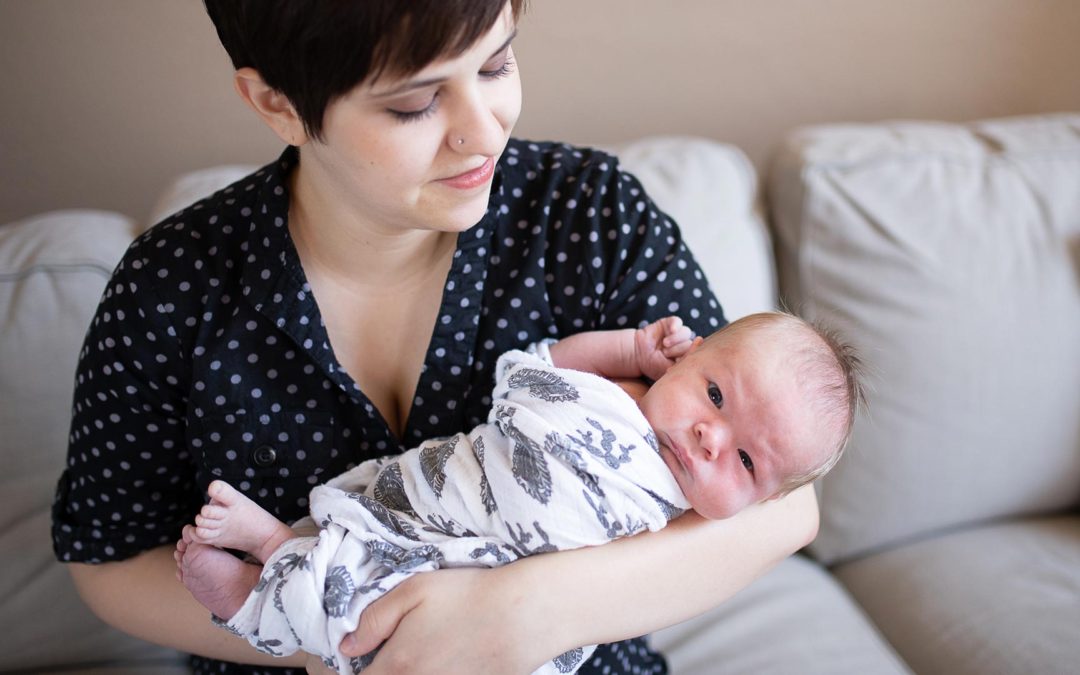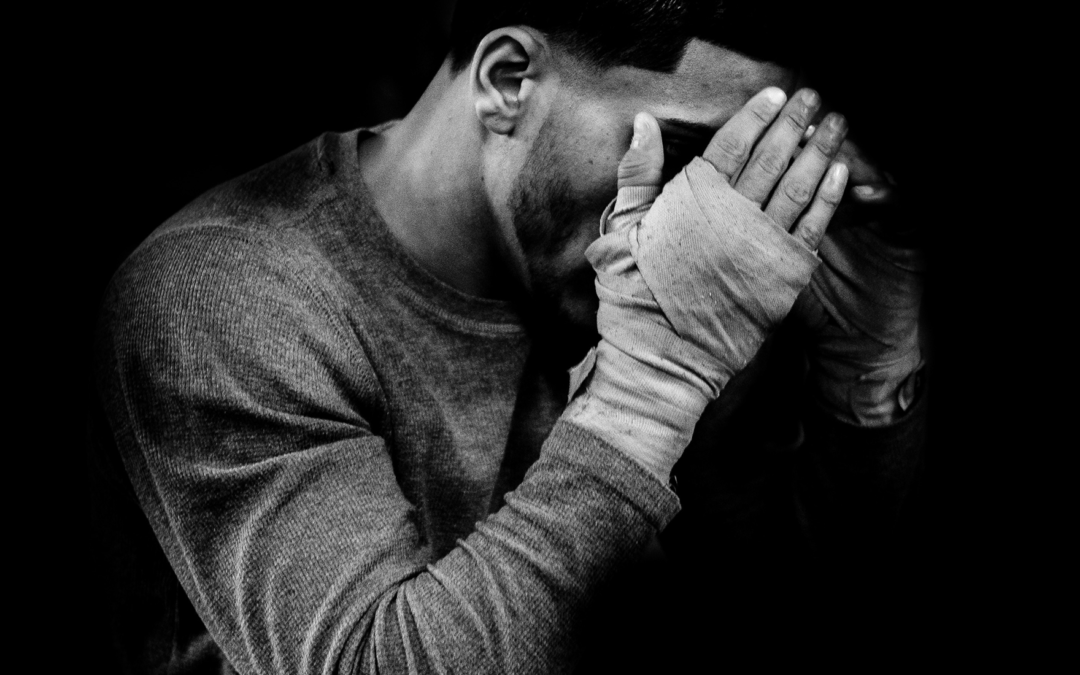I spent my entire college career interviewing fellow students on their beliefs surrounding abortion. With a small table, a thought-provoking question on a sign, and a few friends, we parked ourselves every few weeks in the middle of traffic in-between classes at Arizona State University. The conversations we had on the side of that busy college sidewalk were fascinating. And after a while, a peculiar pattern began to emerge among the men.
Guys would spout politically correct responses like “her body, her choice” or “I could never tell someone else what to do in that situation,” even as some looked sadly into my eyes, betraying a deeper discomfort and unrest imprisoned inside. A few quoted the Friends sitcom: “No uterus, no opinion!” as they strolled past.
I watched them walk contentedly away, thinking they had just given the perfect and irreproachable answer to the most controversial “women’s issue” of our time. All seemed to think that indifference and deferral was the correct response, but it seemed only to make some men mischievously relieved and others uncomfortable. Almost none would share what they actually believed, and as a young woman, it saddened me. Didn’t they know how much their response mattered?
It wasn’t until one day when a young man explained to me, “I don’t think I’m allowed to have an opinion on that,” that a light bulb went off in my head. We didn’t just have an abortion crisis in our culture, we had a crisis of men not responding to the circumstances surrounding abortion.
By cultivating an environment where the only “correct” male attitude toward abortion was one of passive acceptance and indifference, we no longer challenged them to stand by her. The irresponsible were pardoned and men looking to empower their pregnant partners were silenced. I began to realize five reasons why a “no uterus, no opinion” approach cheats women out of the support they deserve.
1. It promotes passivity and indifference when support is crucial.
This was the most glaringly obvious problem from all my one-on-one interactions on campus. In those young men who genuinely wanted to learn more and take positive action, many seemed to feel there was only one side they were allowed to take. Men, don’t be spoon-fed this “safe” answer.
Imagine your girlfriend, wife, or sister staring fearfully at you as she tells you she is facing an unplanned pregnancy. In that critical moment, the next words you speak can change everything. In that moment, “that’s a women’s issue,” falls tragically and painfully flat. She needs you to be confident and rooted in your beliefs, and she wants to hear your feelings and feel your support as she navigates the next life-changing decisions she’ll make. Don’t remain passive. Don’t come across as indifferent.
She wants to hear your feelings and feel your support as she navigates the next life-changing decisions she’ll make.
2. It disguises isolation as liberation.
It assumes abortion is only a “women’s issue.” This view makes sense at first glance. It is the woman who is pregnant, it is the woman who goes through the actual abortion, and it is the woman who is most vulnerable to public ridicule after it is all over. However, the pervading “this is a women’s issue” narrative surrounding abortion has too often pushed the “extraneous” man out of the picture, whether they are content to be ignored or not.
A 2005 study by the Guttmacher Institute found that 48% of women who received an abortion did so because they did not want to be a single mother, or because of other relationship problems.
A 2005 study by the Guttmacher Institute found that 48% of women who received an abortion did so because they did not want to be a single mother, or because of other relationship problems. That’s over 400,000 women who get abortions because they lack the support of their partners. Men, abortion is your issue too, and it is hurting the women you love. Every child has a mother and a father. You are one whole half of the question. Don’t accept the “women only” narrative. A huge part of the solution to so many frightening unplanned pregnancies is the support of fathers. Don’t leave her to face the situation alone.
3. It’s a cop-out to a question everyone must answer.
We tend to want to remain unaware of those things that make us uncomfortable. When it comes to the cultural climate surrounding abortion, men are especially vulnerable to this. As the “1 in 3” women statistic popularized by Advocates for Youth and Planned Parenthood makes clear, everyone has or will be affected by abortion in some way. We live in a time where it is no longer possible to ignore it.
Men, don’t use society’s expectations that you should remain passively on the sidelines as a cop-out. “No opinion” means “I don’t have to consider whether the unborn is a valuable human being or merely a ball of cells.” “No opinion” means “I don’t have to consider how this painful decision may (and often, will) affect a woman I love.” “No opinion” means “I don’t have to make a decision,” period.
4. It fuels fatherlessness (and fatherlessness fuels abortion).
An attitude of “no uterus, no opinion” comes with no strings attached, especially not to the mother in an unplanned pregnancy. It means that a man has no personal obligation to stick around, even if he is the father of the child. This passive statement demands no action, and it only fuels the epidemic of fatherlessness.
In the years since Roe v. Wade, the rate of fatherlessness hasn’t gone down. It’s skyrocketed. The same thing happened in Canada and the UK. (US Census Bureau)
A 2003 study found that fatherless girls were 7 times as likely to experience teenage pregnancy. Some of those teenagers will get an abortion. Others will choose to parent alone. Those teen fathers who did not stand up with bravery and boldness leave their children fatherless, and the cycle begins again.
5. It ignores the pain of those fathers who go through an unwanted abortion.
This is the chapter in the narrative of abortion that most often goes untold. It is the stories of men who regret and mourn lost fatherhood, whether they supported the choice for an abortion or not. And if they did not support it, this feeling of powerlessness can cause deep pain. A 2005 study found 52% of men reported regret after their partner received an abortion. Men, support your brothers and cousins and friends if they find themselves in this tragic situation, and acknowledge the reality of their loss.
But there is hope. We often forget that they face a choice too, whether to run, coerce, or empower when staring at the unexpected mountain of fatherhood. Men, you don’t have to accept the current narrative you’ve been presented. You have the choice to change the life of that woman and that child. Choose to write a new narrative. Choose to stay. Choose to empower.
You have the choice to change the life of that woman and that child. Choose to write a new narrative. Choose to stay. Choose to empower.
Sources:
“Does Father Absence place Daughters at special risk for early sexual activity and teen birth?” Child Development, 2003.
“Reasons U.S. Women Have Abortions.” Perspectives on Sexual and Reproductive Health, 2005.
Coleman, P. K., Reardon, D. C., Strahan, T., & Cougle, J. R. (2005). The psychology of abortion: A review and suggestions for future research. Psychology and Health, 20, 237–271.
Related Articles

How to Make Your Campus Pregnancy-Positive
Meet 3 Students Making Their Campus a place where Pregnant and Parenting students can thrive

Confessions of a Pregnant/Parenting Student & How You Can Help
Katie Forbes talks motherhood, community, and life-hacks

7 Surprising Things You Didn’t Know about Being Pregnant in College
This law empowers women to embrace motherhood and graduate!

